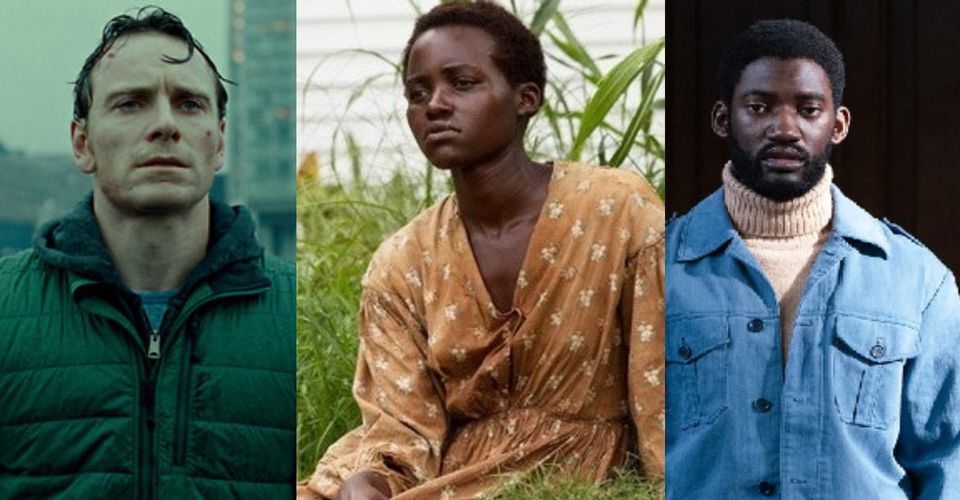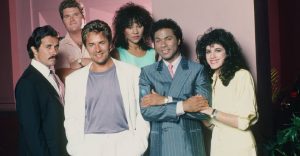Steve McQueen: All Of The Director’s Movies Ranked Worst To Best

Steve McQueen’s Small Axe remains one of the most exciting series in entertainment right now, as it offers fans a new feature-length film from the director on a weekly basis. But how do McQueen’s films rank as a whole? As the first Black British director to win an Oscar for Best Picture, McQueen has certainly established himself as an accomplished filmmaker, but that doesn’t stop some of his films from underwhelming compared to others.
The 51-year-old got his start as a video artist, creating short films for museums and art galleries. McQueen’s initial work was heavily minimalistic, with his first two major pieces being silent films shown in black and white. However, he hasn’t remained limited to this style of working, as is evidenced by his later work – though this early emphasis certainly can be seen to have impacted the way McQueen goes about making a movie.
Since delving into more traditional filmmaking, McQueen has directed four films. Through his Small Axe anthology, he has released two more films, with three more expected by the end of 2020. With McQueen’s filmography literally expanding on a weekly basis, there has never been a better time to rank the director’s six offerings thus far.
Widows

It would be unfair to categorize any one of McQueen’s films as “bad.” After all, they have each been met with varying degrees of critical acclaim. When McQueen’s latest film to hit theaters, Widows, released in 2018, it was embraced as another excellent entry in McQueen’s filmography. Certainly, the film’s ambition cements it as a worthwhile effort from the London-born director. However, that very same ambition is what holds Widows back from the greatness that McQueen achieves in so many of his other films.
Following four women in Chicago who plan to steal a large sum of money from a local politician after each of their husbands were killed, Widows manages to weave together issues of sexism, police brutality, and political corruption while also maintaining all the elements of a compelling thriller. But McQueen’s serious, oppressive tone feels out of place in a heist film, as the genre is at its best when tinged with a wry sense of humor like the kind that Steven Soderbergh has mastered with his Ocean’s films, or with his more recent Logan Lucky. Still, Widows includes a star-studded cast, and a particularly memorable performance from Daniel Kaluuya. Overall, it is both a rewarding and challenging film, but it may just be too brooding and complex for its own good, given the genre it belongs to doesn’t lend itself naturally to this tone.

McQueen’s latest film is the second of five entries in his Small Axe anthology. Lovers Rock is a deceptively simple film. On one hand, it has a rather thin storyline tracing the events of a single house party in 1980s London. Some might find the film rather uneventful for this reason, and its brief 70-minute runtime only further supports this notion, marking it as decidedly not the most well-received in the Small Axe collection. Still, Lovers Rock is a powerful ode to a community, to its music, and to the love instilled in them both. It may not be among McQueen’s best works, but it marks an intriguing departure from the intensity that pervades the rest of his collection.
Applying a more lighthearted lens, McQueen finds unprecedented amounts of joy in Lovers Rock, allowing scenes of dancing and singing to play out entirely uninterrupted. The result is a film that feels memorable and fresh, even if it doesn’t dig as deep into its characters as many viewers may expect.
Shame

A film so bold that it received an NC-17 rating from the MPAA, 2011’s Shame is nothing short of astonishing. Michael Fassbender plays Brandon, a sex addict living in New York City. When his sister Sissy (Carey Mulligan) comes to live with him, he must confront the uncomfortable role that sex plays in his life. Shame is a stunning character study, accentuated by the harsh long takes that have become so vital to McQueen’s directing style. Fassbender’s performance also proves why he has been speculated for so many high-profile roles.
What holds Shame back from a higher ranking in McQueen’s oeuvre is its ambiguity. The vague nature of the circumstances surrounding Brandon and Sissy is mostly effective, but it does result in a rather underwhelming final act.
Related: Netflix: The Best New TV Shows & Movies This Weekend (November 27)
Mangrove

McQueen’s Small Axe series got its start with Mangrove, a courtroom drama so compelling that it makes Aaron Sorkin’s The Trial of the Chicago 7 pale in comparison. McQueen injects the film with fervent anger rarely felt in similar films, highlighting the atrocities of police brutality with overwhelming clarity. Even the film’s ending, which is surprisingly positive considering the events leading up to it, remains appropriately complicated, reminding viewers just how prevalent racial tensions remain in London and around the world.
A stellar cast, highlighted by Black Panther star Letitia Wright, helps pay tribute to the lives of their real-life counterparts. Of course, like many courtroom dramas, Mangrove does veer into overly familiar territory at times. While the events of the film are undoubtedly astounding, it is hard to rank Mangrove any higher than this considering its somewhat formulaic nature.
12 Years a Slave

12 Years a Slave is the film that finally nabbed McQueen an Oscar, but that doesn’t make it his best film. Of course, it is a very close second, and it remains fascinating as a precursor to the #OscarsSoWhite controversy that has plagued the award ceremony ever since. Based on the unbelievable memoir of abolitionist Solomon Northup, 12 Years a Slave tells an all-too-important story set in pre-Civil War America. Here, McQueen rounds up yet another star-studded cast, with Chiwetel Ejiofor and Lupita N’yongo emerging as standouts. Like a lot of McQueen’s work, 12 Years a Slave includes some viscerally brutal moments, which can make it a bit difficult to watch at times. Of course, contemporary viewers cannot close to imagining what Northup endured throughout his life, and McQueen’s unflinching camera demands that we recognize and admire his subject’s strength accordingly.
Just as McQueen so masterfully evokes New York City in Shame and London in his Small Axe films, the director crafts a highly detailed portrait of the Southern United States in the 1840s. Through careful costuming and production design, McQueen transports the audience to a bygone era, one that is becomingly increasingly difficult to imagine despite its obvious resonances with ongoing racial unrest in the United States. Pretty impressive for a Brit!
Hunger

McQueen’s first foray into the world of feature films remains the highpoint of his career. With 2008’s Hunger, McQueen declared himself a special talent, providing a steadfast glimpse into the life of Bobby Sands, a political prisoner and member of the Irish Republican Army who died after a 66-day hunger strike at Northern Ireland’s Maze Prison in 1981. As Sands, Michael Fassbender gives arguably the greatest performance of his career, putting his body through a grueling period of transformation so as to capture Sands’ emaciated figure, akin to Joaquin Phoenix’s transformation into Arthur Fleck for Joker. McQueen captures Sands’ struggle with a series of close-ups that make the hunger strike seem both intimate and haunting.
Like 12 Years a Slave, Hunger can be an incredibly difficult film to watch. Its willingness to depict the atrocities within the Maze Prison makes it a vital film, but also a gruesome one. McQueen perfectly balances the film’s bleakness, however, with several beautiful images that almost abstract Sands’ strike into something even bigger. McQueen’s style is clearly meant to deal with challenging topics, and Hunger demonstrates just how important this kind of filmmaking can be.
The 25 Best Films on Netflix Right Now
About The Author


















